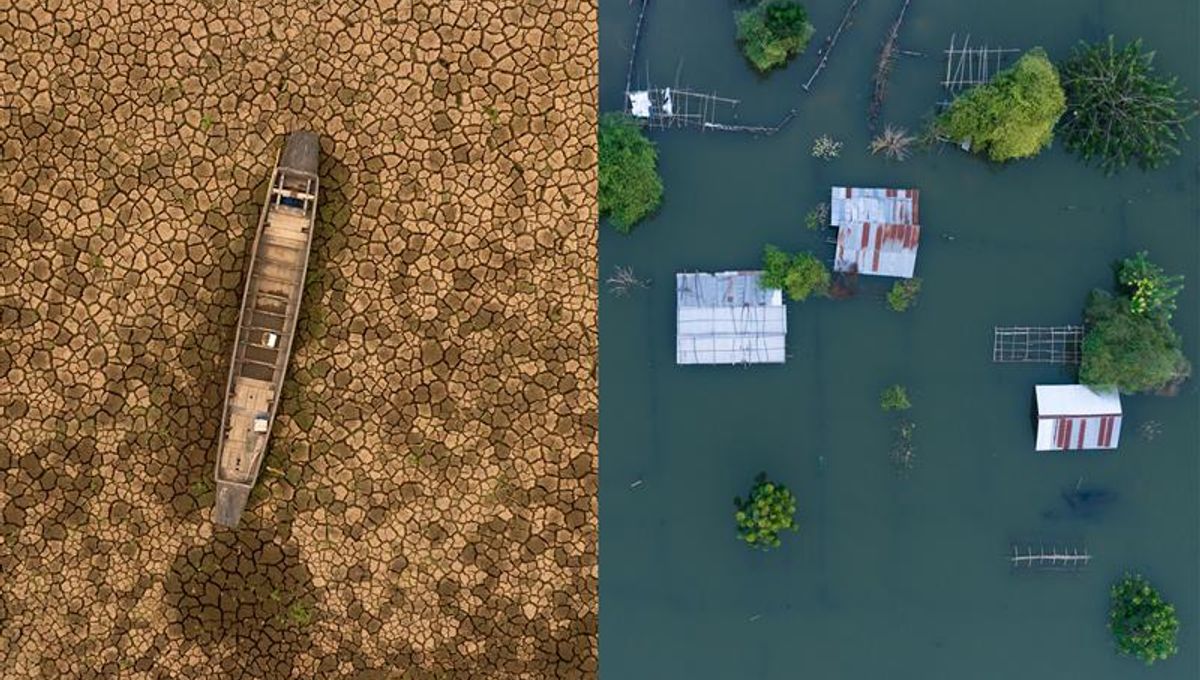
Nearly three-quarters of the global population will experience significant and rapid changes in temperatures and rainfall in the next 20 years, according to a new analysis – a stark warning for many people living across the world. The only way to avoid this is to drastically cut greenhouse gas emissions.
The subject of climate change remains controversial despite the abundant evidence showing that we are currently entering conditions that have not been seen in millennia. It is true that nature and society are accustomed to certain amounts of variation and regional change at different timescales, but changes that occur faster than expected can have devastating impacts.
A key example of this is the record-breaking (or melting) heatwave in the North America in 2021 that was deemed impossible without climate change.
Such extreme events can have various impacts. For instance, heatwaves can lead to heat stress and deaths of both people and animals;` they can also damage ecosystems, lower agricultural yields, disrupt transportation, and even impact power plant cooling systems.
At the same time, extreme rainfall can lead to flooding, which damages infrastructure and homes – but it can also increase erosion, reduce local water quality, and destroy crops.
There is also the risk that these extreme events can overlap, becoming compound events that result in even greater impacts that exceed one event on its own. For instance, the floods that struck Pakistan in 2022 may be an example of this compound situation.
To date, few studies have examined how extreme weather will impact different countries, but Dr Carley Lles and colleagues from the Centre for International Climate Research (CICERO), in collaboration with the University of Reading, have explored how global warming can combine with normal variations in weather to form rapid changes in both extreme temperatures and rainfall.
“We focus on regional changes, due to their increased relevance to the experience of people and ecosystems compared with the global mean, and identify regions projected to experience substantial changes in rates of one or more extreme event indices over the coming decades,” Lles explained in a statement.
Unstable times ahead
The research shows that 20 percent of the world’s population could face similar extreme weather risks in the next two decades if greenhouse gas emissions are cut in accordance with the Paris Agreement. However, if efforts remain limited, this could rise to as much as 70 percent of the population.
To reach these conclusions, the team created large climate simulations that showed how large parts of the tropics and subtropics – which encompass around 70 percent of the current global population – will likely experience strong joint rates of change for extreme temperatures and rainfall over the next 20 years under what they call the “high-emissions scenario”.
But even with strong emissions mitigation, the situation remains serious: around 1.5 billion people will still be impacted.
As our awareness of the climate situation continues to develop, it is important to understand that even our clean-up efforts will carry specific risks.
“We also find that rapid clean-up of air pollution, mostly over Asia, leads to accelerated co-located increases in warm extremes and influences the Asian summer monsoons”, Dr Laura Wilcox, co-author at the University of Reading, added.
“While cleaning the air is critical for health reasons, air pollution has also masked some of the effects of global warming. Now, the necessary cleanup may combine with global warming and give very strong changes in extreme conditions over the coming decades.”
The team also stress that the results have significant implications for climate adaptation. The only way to address this global problem is to prepare for a situation that is much more likely to result in unprecedented extreme events in the coming years. That way, we can mitigate the worst impacts.
The paper is published in the journal Nature GeoScience.
Source Link: Extreme Weather Increases Could Impact 70 Percent Of World's Population In Next 20 Years